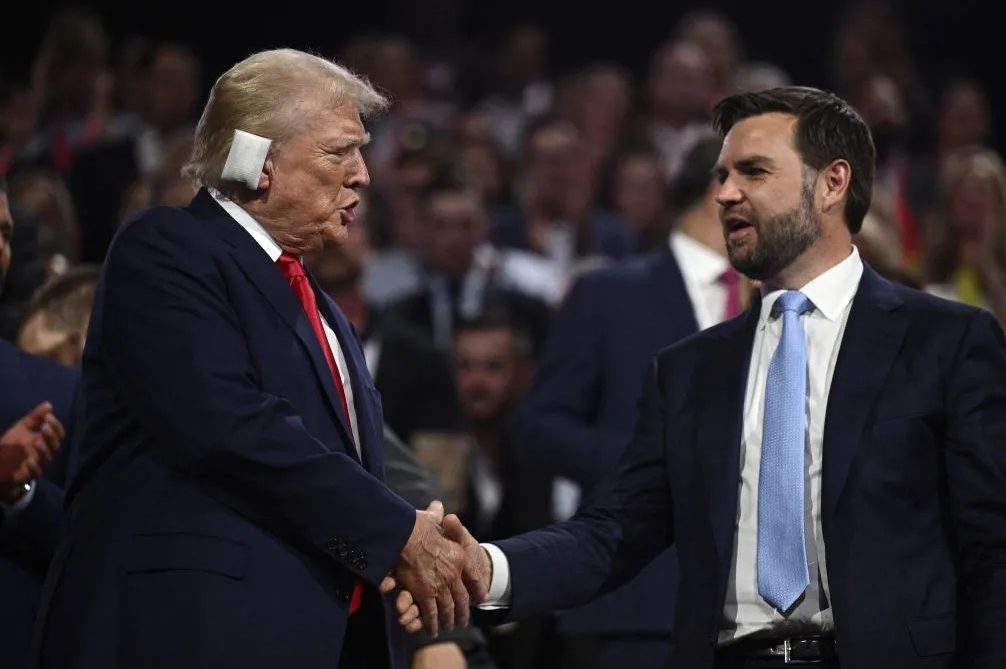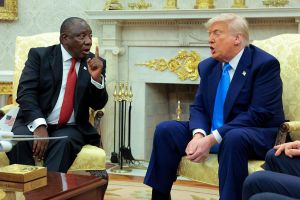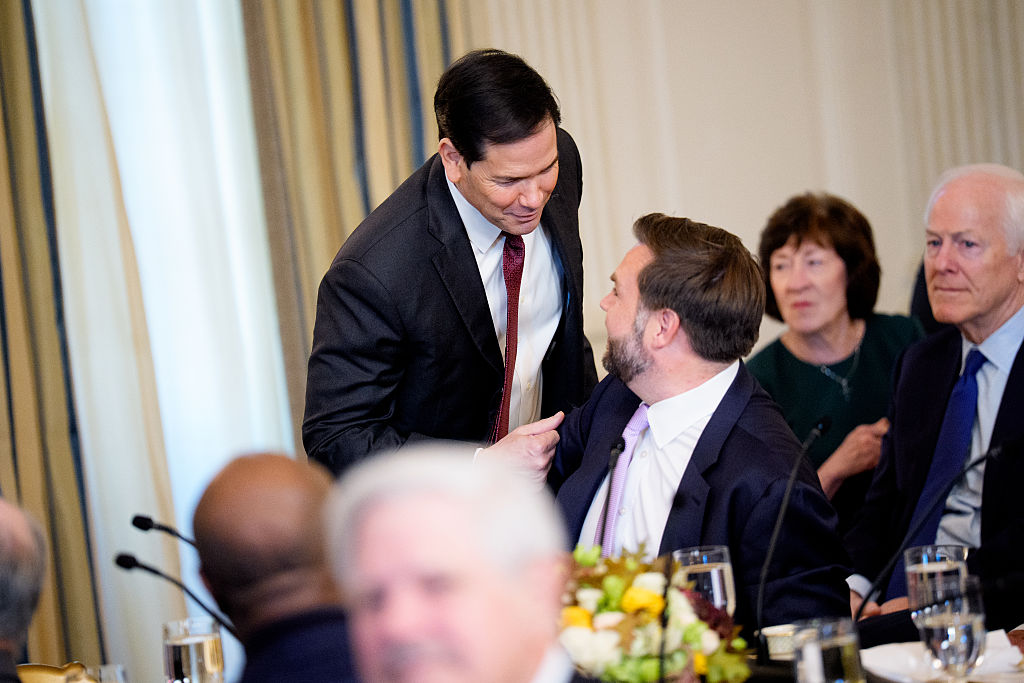I’m meant to maintain some air of objectivity at Trump’s selection of J.D. Vance for vice president, but I can’t be bothered. It’s just excellent. By appointing him, Trump guarantees that the Republican Party will never go back to being neocon warmongers run by Wall Street. To channel Kamala Harris, I believe Vance shows us what the Republican Party could be, unburdened by what it has been.
The biography is well versed — white trash made good, author of Hillbilly Elegy, convert to Trump — but the philosophy is under-appreciated. The first thing to know is that he has a philosophy. How rare is that?! Most politicians ride into office on half-baked vibes and narcissism, but Vance is, well, one of us: a thinker risen through the movement, someone who has paid attention to the times and what’s been written about them.
He sees America as broken, maybe the whole West. No cheap patriotism, please. Like drowning your sorrows in beer and cocaine, it’s deeply unhelpful.
There’ll be a lot of focus on the material aspects of his thinking — free trade, military aid — but his key point is that America has been remade since the 1960s by liberalism, and the experiment has hurt the very people it was meant to help because liberalism is decadent. It’s good at maximizing freedom, bad at encouraging responsibility, maturity, seriousness, duty. In his Hillbilly Elegy, he demonstrated how individuals can become corrupted by self-pity. As a politician, he’s become more interested in how corporations and the state make it hard for us to live as dignified citizens by undercutting pay or polluting the culture with bad ideas.
Mass migration, even illegal, looks good — perhaps of moral benefit — to the wealthy liberal, because it means diversity and growth. To the working class, it means drug trafficking, low wages, rapid social change. The libertarian conservative is reluctant to reduce it either because they sympathize with the liberal’s cultural values or because they don’t like medalling with market forces. The populist conservative looks at the administrative state and says, “well, if it can be used to liberal ends, why not use it for conservative ends?” It’s plainly never going away!
The vision of Vance is a society of happy, healthy families living on a single income. You don’t just get there through tax cuts; you must actively promote domestic industries and a healthy society. If there’s a legitimate criticism of Vance it’s that he leans towards European-style big state conservatism without going the whole hog. If we’re going to save the steel industry or ban TikTok, why not also promote unions, expand cheap healthcare or clean up the environment? But even if Trump/Vance isn’t heading there yet, it at least points American conservatism in the right direction.
Much will be made of his conversion to Catholicism, not least among liberal, cradle Catholics who despair of the traddy variety. Isn’t there a tension, they ask, between the universalism of the Church and Vance’s populist nationalism?
I think so; it is a serious problem. But Catholicism is drawing a lot of converts on the new right because it has a rich heritage (Vance chose Augustine of Hippo as his confirmation saint); because the Church made the western civilization they wish to preserve; and because Catholicism addresses what Barry Goldwater called “the whole man.” The Catholic isn’t just a Catholic in church, but at play, rest, even in bed, and it makes us part of something bigger and older than ourselves.
Westerners are not just consumers, but also producers; not only individuals but members of a community; and not self-invented citizens, but custodians of historical tradition that stretches back to Lincoln, Adams, Augustine and St. Paul. In a speech to the National Conservatives Conference, Vance dismissed the notion, popular on left and right, that America is a creedal nation, the product of ideas. Rather, its governing ideas are the product of religion, culture, time and place; the historical nation is real, it has a substance. It must be cherished and passed on.
The Trump phenomenon was motored by personality: you were really voting for him. Vance is driven by philosophy: his fans like what he thinks. Whether he loses or wins, he’ll likely be the Republican nominee in 2028 — and thus the baton passes to a new generation of conservatives.
This article was originally published on The Spectator’s UK website.


























Leave a Reply